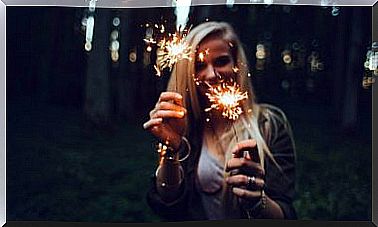Night Terrors In Adults
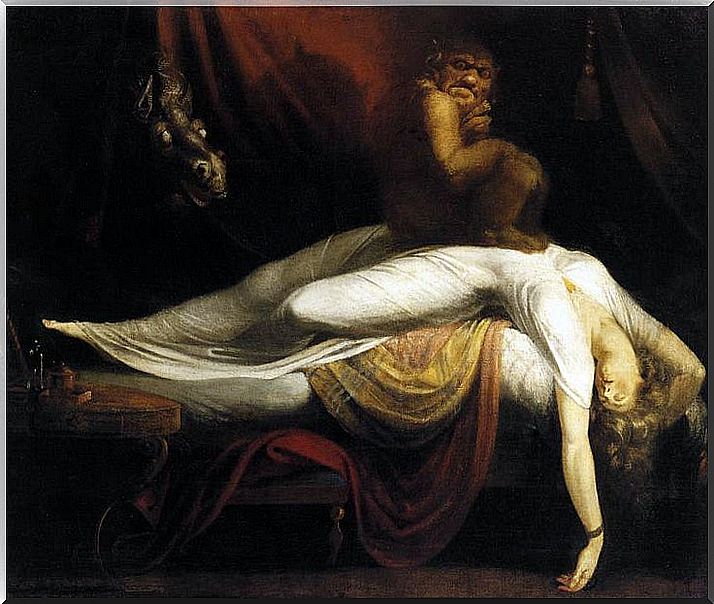
Just as there are true fans of the night (night owls) there are also those who fear it. As soon as the shadows begin to take over the environment, an uneasiness begins to grow in them that sometimes is unbearable.
The causes and manifestations of night terrors are many. There are those who are simply afraid of the dark. Others experience disturbing situations such as sleep paralysis or frequent nightmares. Some more live what is specifically known as night terror, which has its own specific characteristics.
Night terrors and darkness
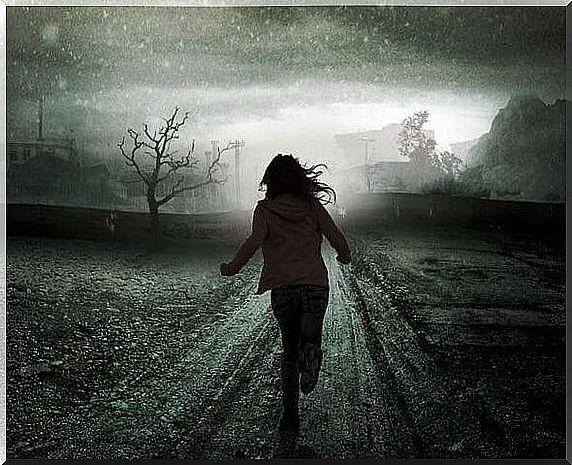
The fear of the dark and the night is known by several names: nyctophobia, scotophobia, acluophobia, ligofobia or myctophobia. It is very common in children, but there are also many adults who suffer from this irrational fear.
Feeling fear when there is no light is almost natural. Humans have limited vision, which is further reduced in the dark. Therefore, it is just normal that we feel more vulnerable when there is no light. However, over time a strong cultural burden has also been imposed on darkness and night. Most horror stories take place at night.
The word darkness has also acquired a negative connotation. We speak of “darkness” to refer to the absence of reason, confusion or bad times. Therefore, the dark is seen by many, mechanically, as something negative.
The origins of night fear
It is common that if a child develops an inordinate fear of the night, this fear continues into adulthood. Usually this occurs because parents do not respond sympathetically to these common fears.
For psychoanalysis, the fear of the dark corresponds to an anxiety disorder. This stems from the anguish of separation that in childhood is referred to parents and in adult life to other loved figures. Fear of the night can also be the result of a previous traumatic experience, which took place during the night. There is then talk of a post-traumatic stress effect.
Whatever the case, the truth is that the appearance of the shadows unleashes a series of sinister fantasies. Those who suffer from this phobia feel under threat and are overcome by the feeling that at any moment they are going to be the victim of a terrifying experience.
Sleep paralysis
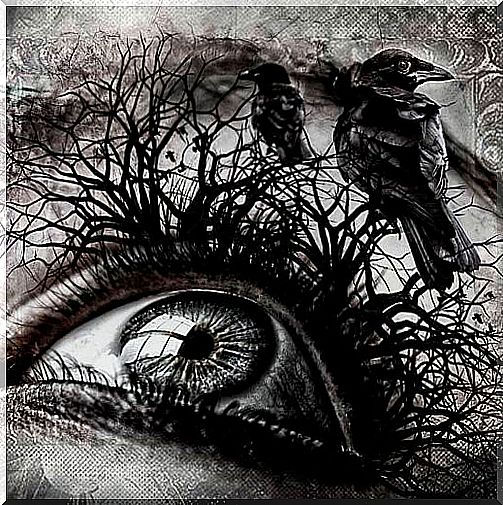
Sleep paralysis is another one of those experiences that many fear. As the name implies, it is about the inability to perform voluntary movements during sleep. As if you were awake, but you cannot move or establish contact with the environment.
This is a fairly common situation. Studies indicate that more than 60% of people have sleep paralysis at least once in their life. It does not involve any danger, nor does it have major consequences. But although it does not put you at risk, this does not mean that it is a distressing and annoying experience.
Night terrors proper
Night terrors themselves are a sleep disorder that is halfway between a nightmare and sleep paralysis. Whoever suffers them remains in a state of sleepiness, without being able to establish a true dividing line between the content of a nightmare and what is happening in reality. So it is quite an intense and scary experience.
Generally, the person who suffers from the night terror emits moans, cries and even screams. But it does not finish waking up. Science has not yet been able to determine why these types of episodes occur. However, there seems to be a correlation between these and the consumption of some drugs, emotional tension, lack of sleep or some organic deficiencies.
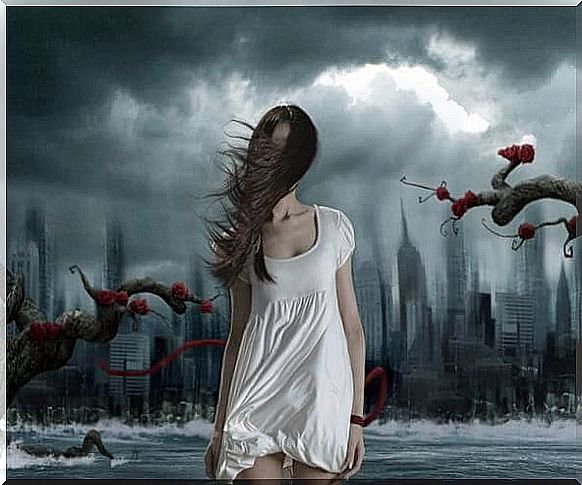
This disorder is not easy to diagnose and it is not easy to treat. But everything indicates that relaxation practices, such as yoga, Tai Chi or meditation, considerably alleviate these symptoms. In severe cases, the person must be given medication to induce deep sleep. Psychotherapy or psychoanalysis is also recommended, since they are mechanisms that help to better manage this situation.
What’s behind these night terrors?
When night terrors occur occasionally, there is little concern. However, if its frequency is too high to cause dysfunctional sleep, it is best to seek advice from a psychologist. We must investigate what causes us these night terrors. Stress, anxiety, fears, daily situations that cause us discomfort, etc. All of this could be translated into this type of event.
The meditation can be an ideal tool to investigate our minds and calmarl the same time a. A basic meditation such as mindfulness, will help us to focus our attention and reduce our excessive worry about daily events. In this way we can see how our night terrors will be reduced and we will have a pleasant rest.
Image courtesy Henri Fuseli’s “The Nightmare” (1781) A. Cruz, RaquelKortizo, Wattpad

